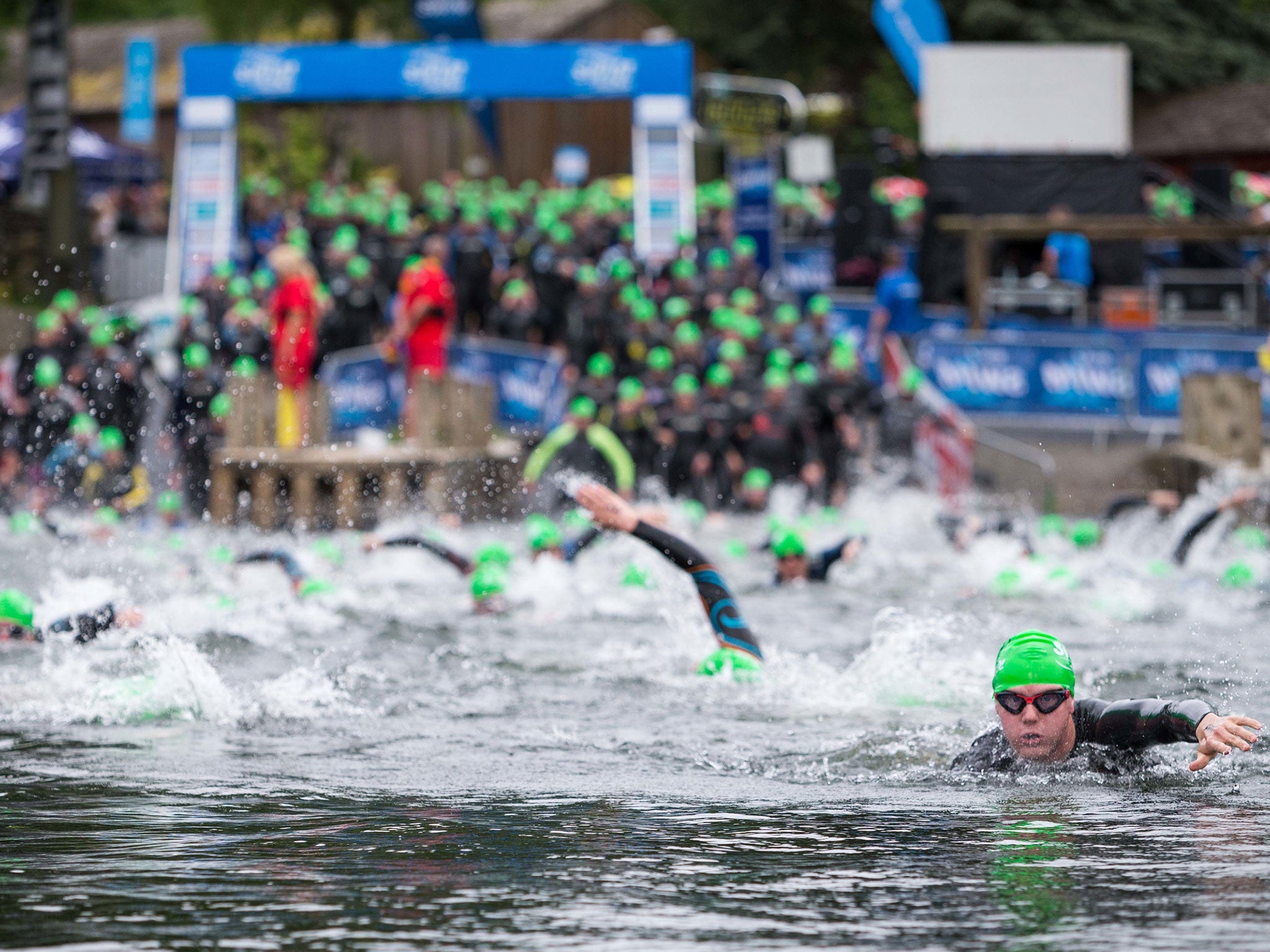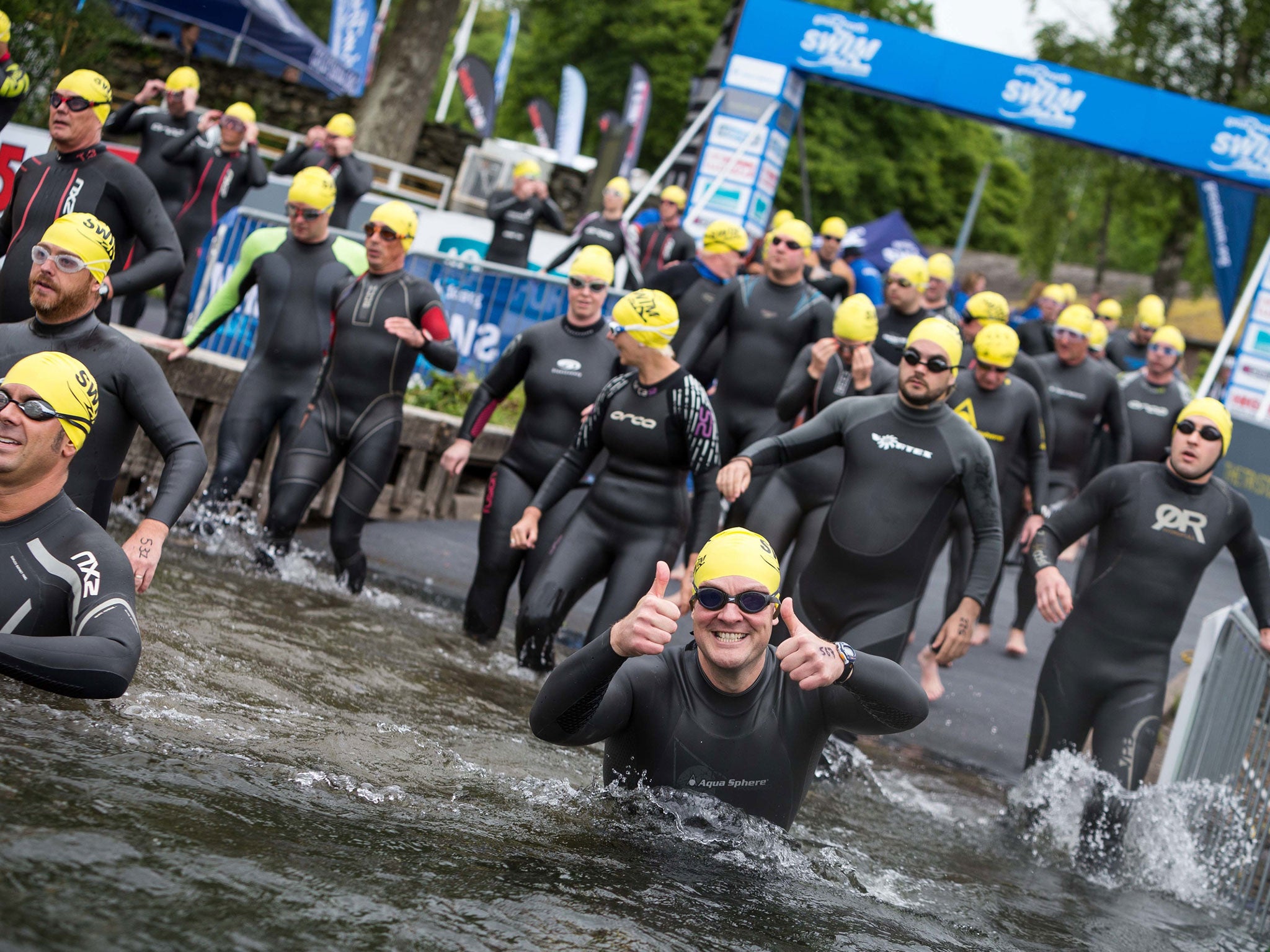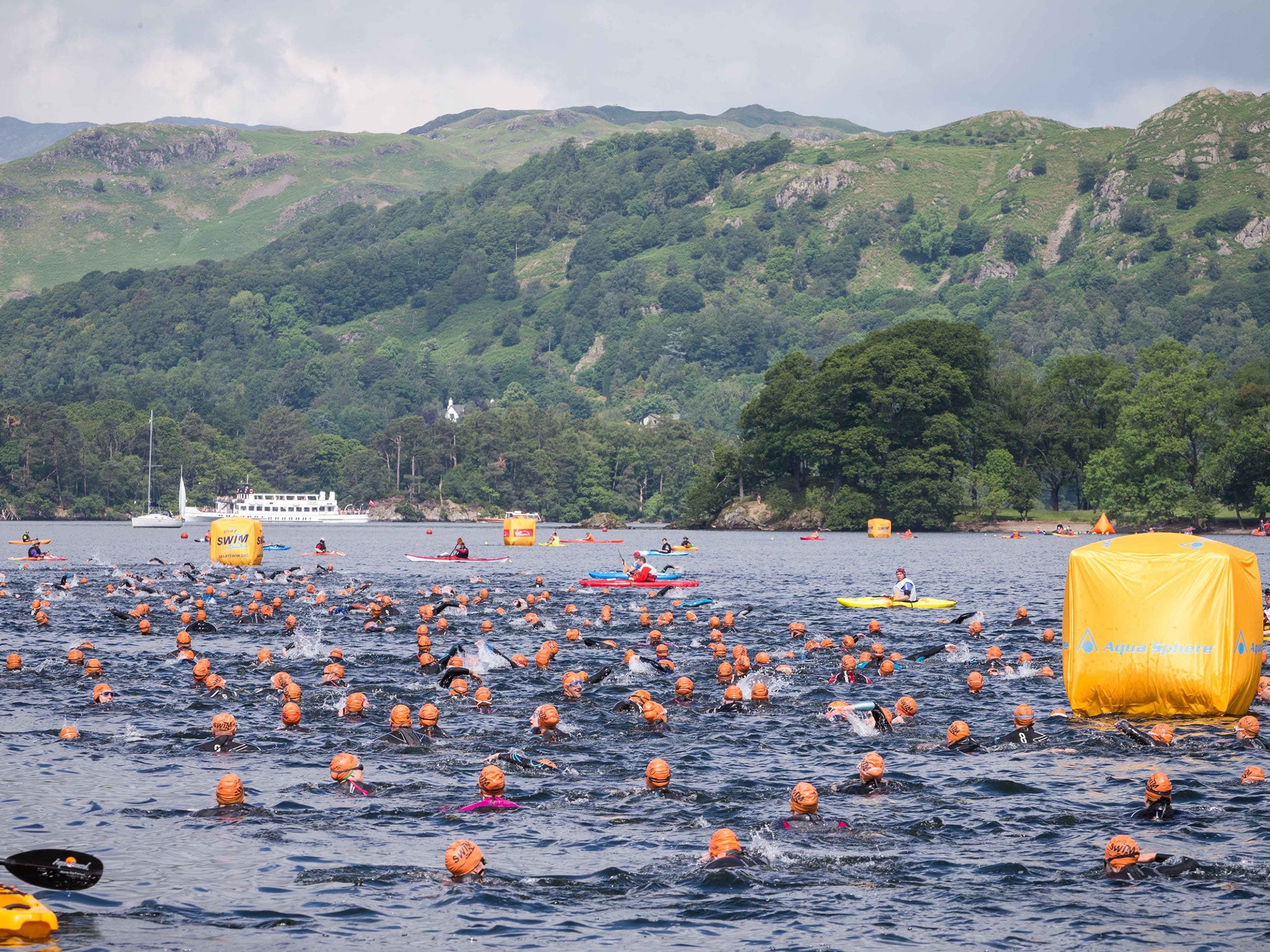Come on in, the water’s clean: why outdoor swimming is the new wave
Paris says that, in a year, you’ll be able to swim in the Seine. But don’t let that stop you going wild in Britain now, says Kashmira Gander

Paris: a city whose name conjures up gloriously vivid images as few others can. Elegantly dressed couples enjoying short coffees and buttery croissants outside quaint brassieres, with the black iron lattice of the Eiffel Tower in the distance and – perhaps soon – wriggling into a bathing suit and cannonballing into the Seine.
The suspiciously brownish-grey waters flowing through many European cities don’t generally overpower one with the urge to leap in. But now, the mairie in Paris hopes to change that. They have pledged to make parts of the river and its adjoining canals clean enough to swim in by 2017, as part of the French capital’s bid to host the 2024 Olympics.
It’s an eye-catching aspiration: there has been a revival in outdoor swimming since it first featured as a modern Olympic sport at Beijing in 2008. It’s also an advertisement for EU-led initiatives to combat industrial pollution. And it’s music to the ear (plugs) of such organisations as Britain’s Outdoor Swimming Society – one of our biggest and most trusted organisations promoting the sport – whose membership has risen from 600 to nearly 30,000 since it was established a decade ago.
True, the prospect of encountering creepy-crawlies, feeling the sudden stroke of a plant’s tendrils under water, and exposing oneself to the UK’s chilly climes can be daunting for those used to the warmth and relative luxury of heated, chlorinated pools. However, devotees praise the pastime as if it were a life-giving elixir. Many claim it gives them vitality, a place in a tight-knit and mixed-age community and a chance to exercise while having a bit of an adventure.
“When I discovered the Hampstead Heath women’s ponds, a lovely natural lake surrounded by trees, I became totally hooked,” recalls Elsa Vulliamy, a freelance journalist from north London. “Swimming in a dirty, freezing lake doesn’t sound so good on paper, but in reality it’s one of the most beautiful and relaxing experiences a person can have. I love everything about natural water – even getting covered in dirt. It’s such an easy way to feel as though you’re far away from busy city life, even if you’re doing it in the middle of London.”

Alex Jackson, the director of Great Swim, Europe’s biggest open-water swim series, says many enthusiasts share Vulliamy’s escapist tendency. “For a lot of our participants, the feeling of freedom is the main draw. Once you’ve experienced swimming without walls, lanes or chlorine, it can become very addictive. It also gives you the opportunity to experience some incredible locations from a different perspective, whether it’s picturesque rural locations such as Windermere or Loch Lomond or some of our busiest cities such as London or Manchester.”
That’s all well and good, but the gloomy weather that blights the British Isles means natural water rarely warms to more than 20C – dramatically lower than the average body temperature – or a comfortable bath at 37C. Yet for many outdoor swimmers, this is part of the draw. Vulliamy claims that, though you can feel quite cold after about first 15 minutes, the initial, nerve-stabbing, icy pain only lasts a few seconds, and the exhilaration is worth it. “The cold is, without a doubt, the best part of swimming in seas and lakes,” she says. “The endorphin rush will keep you in a good mood for the entire day.”

That said, there’s no shame in donning a wetsuit to keep warm - especially if you are a beginner.
“It’s not a competition about how long you can stay in cold water,” says Oliver Pitt, head of social media at the Outdoor Swimming Society. “You can stay in as long as you are enjoying the experience. It’s just a question of getting used to swimmer in cooler waters by regularly acclimatising to it.”
As the summer months approach, the weather becomes ideal for first-timers to hit the water. However, beginners must be aware that the sense of adventure offered by outdoor swimming offers can also make it dangerous. Pitt says swimmers of all levels must remember that natural water can change in character throughout the year, so it is always safer to go out with a swimming club or a friend, and identify a spot where you can safely leave the water. Wearing a brightly coloured swimming hat can also help with rescue operations if the situation gets a little hairy.
Those with health problems, particularly heart conditions, should visit their doctor before entering cold water, and the usual rules of slapping on sunscreen before heading outdoors still apply. But on the plus side, natural water can be kinder than chlorinated for those with eczema or respiratory problems. And – like all other forms of exercise – swimming outdoors can boost physical and psychological health, and reduce the risk of heart disease, type-two diabetes and strokes.
Suddenly tempted to give it a go and need to know where? The Outdoor Swimming Society’s wildswim.com website is a useful place to start. As Pitt says: “There are locations throughout the country – not just the national parks and sandy beaches with evident beauty – but esoteric moorland pools, urban lidos and man-made locations all worth finding out about.”
So with a wetsuit at the ready and a thumbs up from the doctor, there’s nothing left to do now but dive in.
Join our commenting forum
Join thought-provoking conversations, follow other Independent readers and see their replies
Comments
Bookmark popover
Removed from bookmarks